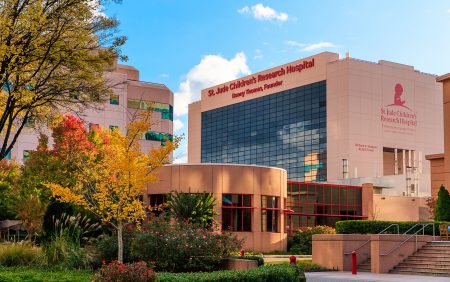
St. Jude experts tout benefits and safety of COVID-19 vaccines

June 04, 2021 • 3 min

They whisked through data-packed slides while offering commentary touching on topics from immunology to genetics to government-regulatory processes.
But the message delivered by a trio of experts from St. Jude Children’s Research Hospital during a recent webinar couldn't have been clearer: The vaccines now available to fend off the COVID-19 virus are not only safe and effective, but offer the best chance yet to quell the pandemic.
“The take-home message from me — and I tell everyone – is all these vaccines are great,” said Richard Webby, Ph.D, a faculty member in the St. Jude Department of Infectious Diseases.
Webby, the internationally renowned researcher who also directs the World Health Organization Collaborating Centre for Studies on the Ecology of Influenza in Birds and Animals, said people often ask him which of the available vaccines they should take. “My answer is easy: Whichever one you can get first.”
The hour-long webinar provided answers to questions and concerns about COVID-19 vaccines while also highlighting the depth of expertise at the research hospital.
Although it is best-known for treating and finding cures for childhood cancer, St. Jude long has been a hub of research into the infectious diseases that can pose a dramatically amplified threat to patients whose immune systems have been ravaged by chemotherapy and radiation.
St. Jude also helped recruit adult participants for a clinical trial last year testing a COVID-19 vaccine.
In addition to Webby, the webinar featured Diego Hijano, MD, assistant member of St. Jude faculty in the Department of Infectious Diseases, and James Hoffman, PharmD, faculty member in the Pharmaceutical Sciences Department and Chief Patient Safety Officer. Hijano is the hospital’s COVID-19 case investigator and contact-tracing lead, while Hoffman oversees vaccinations at St. Jude.
The specialists said the unusually rapid development of the vaccines by Pfizer-BioNTech, Moderna and Johnson & Johnson is traceable to major scientific advances years in the making. And while the “emergency-use authorization” they received from the Food and Drug Administration is not the same as full FDA approval, that doesn’t mean the vaccines weren’t thoroughly tested.
“It happened quickly, but it was not rushed,” Hoffman said of the process.
“All the same work was done. It was done in a compressed time period because we’re in a pandemic.”
The three main vaccines authorized in the U.S. differ in many ways, Webby said, but all try to train the immune system to blanket the protein spikes on the novel coronavirus with antibodies to prevent it from latching onto and penetrating host cells. “If a virus can’t get into the host cell, nothing happens.”
That strategy should enable the vaccines to be mostly, or at least somewhat, effective against the variants of the virus now in circulation, he said. But many questions remain for researchers to answer, Webby said, including how long the immunity imparted by the vaccines lasts, how well the vaccines work in children, and how well the shots prevent infection and transmission of the virus.
Hijano devoted much of his presentation to addressing fears about side effects from the vaccines. Brandishing data for patients who have received one or two doses, he said the rate of anaphylaxis — a life-threatening allergic reaction — from the shots is far lower than that for penicillin.
Nor are the vaccines a threat to cause infertility or problems in pregnancy, Hijano said, adding that for expectant mothers, COVID-19 presents a far greater threat than vaccines. New mothers, he said, can be assured that the vaccines won’t affect their babies through breast milk.
Responding to another rumor, Hijano said vaccines do not intrude into the nucleus of the cell and cannot alter the recipient's DNA.
The shots are recommended even for people who have had COVID-19, he said, because their immunity might not be long-lasting. “Early evidence suggests vaccines provide better immunity than natural infection.”







